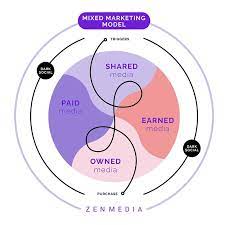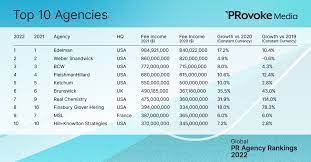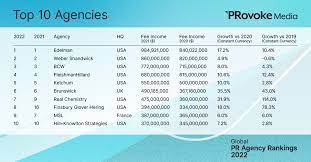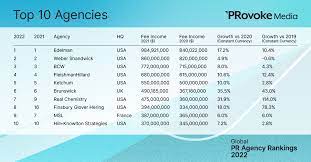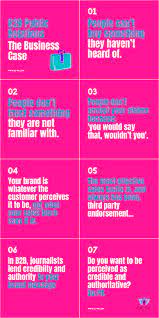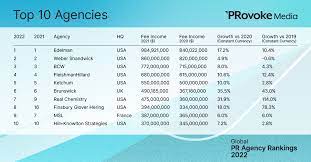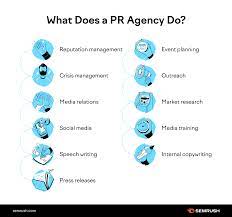Leveraging the Power of Public Relations in Marketing Communications: Building Strong Brands and Relationships
Public Relations Marketing Communications: Building Strong Brands and Relationships
In today’s fast-paced and highly competitive business landscape, effective communication is paramount to success. Public relations (PR) marketing communications play a vital role in helping businesses build strong brands, foster positive relationships with stakeholders, and achieve their goals.
At its core, PR marketing communications is the strategic management of communication between an organization and its target audience. It encompasses various activities such as media relations, content creation, social media engagement, event management, crisis communication, and more. The goal is to shape public perception, enhance brand reputation, and ultimately drive desired actions.
One of the key aspects of PR marketing communications is brand building. A strong brand creates a unique identity that sets a business apart from its competitors. Through carefully crafted messaging and consistent storytelling across different channels, PR professionals can help businesses establish a distinct voice and personality that resonates with their target audience.
Effective PR marketing communications also involve engaging with stakeholders on multiple platforms. This includes traditional media outlets such as newspapers, magazines, radio, and television as well as digital platforms like social media networks, blogs, podcasts, and online publications. By leveraging these channels strategically, businesses can reach a wider audience and create meaningful connections.
Building relationships is another crucial element of PR marketing communications. Cultivating positive relationships with customers, employees, investors, industry influencers, and the community at large is essential for long-term success. Through transparent communication practices that foster trust and open dialogue, businesses can strengthen these relationships and establish themselves as credible industry leaders.
Furthermore, PR marketing communications play a vital role in managing crises effectively. In times of unexpected challenges or negative publicity, having a well-prepared crisis communication strategy in place can help minimize reputational damage. Swift responses that address concerns transparently demonstrate accountability and show stakeholders that the business values their trust.
Measurement and evaluation are integral to the success of any PR marketing communications campaign. By setting clear objectives at the outset and tracking key performance indicators (KPIs), businesses can assess the impact of their communication efforts. This data-driven approach allows for continuous improvement and ensures that PR strategies are aligned with business goals.
In conclusion, public relations marketing communications are essential for building strong brands, fostering relationships, and achieving business objectives. By leveraging strategic messaging, engaging with stakeholders across various channels, managing crises effectively, and measuring results, businesses can navigate the complex communication landscape with confidence. Investing in PR marketing communications is an investment in long-term success and growth.
9 Essential Tips for Effective Public Relations Marketing Communications
- Understand your target audience
- Utilise multiple channels
- Develop relationships
- Create compelling content
- Monitor & measure results
- Leverage user-generated content
- Stay up-to-date on trends
- Invest in technology
- Be consistent
Understand your target audience
Understanding Your Target Audience: The Key to Effective Public Relations Marketing Communications
In the world of public relations marketing communications, one crucial tip stands out among the rest: understand your target audience. Knowing who you are communicating with is essential for crafting messages that resonate, building strong relationships, and achieving your communication goals.
To begin, take the time to research and analyze your target audience. Who are they? What are their demographics, interests, and behaviours? Understanding these factors will enable you to tailor your messaging to their specific needs and preferences. By speaking directly to their interests and concerns, you can capture their attention and establish a meaningful connection.
Additionally, understanding your target audience allows you to choose the most effective communication channels. Are they active on social media platforms? Do they prefer traditional media outlets? By knowing where your audience spends their time, you can strategically distribute your messages through the channels that will reach them most effectively.
Moreover, understanding your target audience helps you craft compelling content that resonates with them. By knowing their pain points, aspirations, and desires, you can create messaging that addresses their needs and provides value. This approach builds trust and credibility while positioning your brand as a trusted resource in their eyes.
Furthermore, understanding your target audience enables you to adapt your communication style appropriately. Different demographics respond differently to various tones and language choices. By tailoring your messaging style to suit their preferences – whether it’s formal or informal, technical or accessible – you can ensure that your messages are received positively.
Lastly, understanding your target audience allows for effective measurement and evaluation of your PR marketing communications efforts. By defining clear objectives tied to audience engagement or behaviour change metrics, you can assess the impact of your campaigns accurately. This data-driven approach enables you to refine strategies based on insights gained from how well they resonate with your intended audience.
In conclusion, understanding your target audience is a fundamental tip in public relations marketing communications. It serves as the foundation for crafting tailored messages, choosing the right communication channels, and building meaningful relationships. By investing time and effort into understanding your audience, you can elevate your PR efforts and achieve greater success in reaching and engaging the people who matter most to your business.
Utilise multiple channels
Utilise Multiple Channels: Maximising the Reach and Impact of PR Marketing Communications
In the ever-evolving world of public relations marketing communications, businesses must adapt and embrace a multi-channel approach to effectively connect with their target audience. Utilising multiple channels can significantly enhance the reach and impact of communication efforts, allowing businesses to engage with a wider audience and create meaningful connections.
Gone are the days when traditional media outlets were the sole means of communication. Today, businesses have an array of channels at their disposal, including social media platforms, blogs, podcasts, online publications, email marketing, and more. By leveraging these diverse channels strategically, businesses can amplify their messages and ensure they reach different segments of their target audience.
Each channel offers unique advantages and characteristics that cater to specific communication needs. Social media platforms like Facebook, Twitter, Instagram, LinkedIn, and YouTube provide an opportunity for businesses to engage directly with customers in real-time. These platforms allow for interactive communication through posts, comments, likes, shares, and direct messages. By crafting compelling content tailored to each platform’s format and audience preferences, businesses can foster engagement and build a loyal following.
Blogs and online publications offer a more in-depth platform for storytelling and thought leadership. By creating informative articles or guest blog posts on relevant industry websites or collaborating with influencers in the field, businesses can position themselves as trusted experts in their niche. This not only boosts brand credibility but also helps attract a wider audience who are actively seeking valuable insights.
Podcasts have gained immense popularity in recent years as a powerful medium for storytelling. Businesses can leverage this audio platform by hosting their own podcast or collaborating with established podcasters to share industry knowledge or discuss relevant topics. This allows them to connect with listeners who prefer consuming content on-the-go or during leisure activities.
Email marketing remains an effective tool for direct communication with customers who have opted-in to receive updates from a business. By crafting personalised newsletters or targeted email campaigns, businesses can deliver tailored messages directly to their audience’s inbox. This channel provides an opportunity to nurture relationships, share exclusive content or offers, and drive specific actions.
While utilising multiple channels is crucial, it is essential to maintain consistency in messaging and brand identity across all platforms. By ensuring that the core values and personality of the brand shine through in every communication effort, businesses can build a strong and recognisable brand image.
In conclusion, leveraging multiple channels in PR marketing communications is essential for maximising reach and impact. By strategically utilising various platforms based on their unique advantages and aligning them with business goals, businesses can connect with a diverse audience and create meaningful engagement. Embracing a multi-channel approach allows businesses to adapt to changing communication trends while maintaining consistency in their brand messaging.
Develop relationships
Developing Relationships: The Key to Successful Public Relations Marketing Communications
In the world of public relations marketing communications, one tip stands out as paramount: develop relationships. Building strong connections with stakeholders, whether they are customers, employees, investors, or industry influencers, is the foundation for success in this field.
Why are relationships so crucial? Simply put, people do business with those they trust and have a connection with. By investing time and effort into cultivating meaningful relationships, businesses can create a network of advocates who will support and promote their brand.
When it comes to customers, developing relationships is about more than just making sales. It’s about understanding their needs, preferences, and pain points. By actively listening to customers and engaging in two-way communication, businesses can tailor their messaging and offerings to better serve them. This not only helps build loyalty but also encourages positive word-of-mouth recommendations.
Employees are another vital group to focus on when developing relationships. They are the face of the company and can significantly impact its reputation. By fostering open communication channels and creating a positive work environment where employees feel valued and heard, businesses can cultivate a team that is passionate about their brand. These engaged employees become brand ambassadors who authentically promote the business both internally and externally.
Investors also play a crucial role in a company’s success. Building strong relationships with investors involves transparent communication about business goals, financial performance, and growth strategies. Regular updates on progress and opportunities for dialogue help establish trust and confidence in the company’s leadership.
Industry influencers hold significant sway over public opinion. Engaging with them through targeted outreach efforts can lead to valuable partnerships that amplify brand messaging to a wider audience. Collaborating with influencers who align with the company’s values helps build credibility and increases visibility within the industry.
In summary, developing relationships is an essential tip for successful public relations marketing communications. By investing in genuine connections with customers, employees, investors, and industry influencers, businesses can foster trust, loyalty, and advocacy. Building these relationships creates a strong foundation for effective communication and paves the way for long-term success in the dynamic world of PR marketing communications.
Create compelling content
Create Compelling Content: The Key to Successful PR Marketing Communications
In the world of public relations marketing communications, creating compelling content is a game-changer. It is the driving force behind capturing attention, engaging audiences, and building strong brand connections. Whether it’s an engaging blog post, a thought-provoking social media campaign, or a captivating video, compelling content has the power to leave a lasting impact.
But what exactly makes content compelling? It goes beyond just being informative or entertaining; it’s about crafting messages that resonate with your target audience on a deeper level. Here are some key elements to consider when creating compelling content for your PR marketing communications:
- Know Your Audience: Understanding your target audience is crucial. Take the time to research their needs, preferences, and interests. Tailor your content to address their pain points and provide valuable solutions. Speak their language and use storytelling techniques that evoke emotions and create connections.
- Be Authentic: Authenticity is key in today’s digital age. People crave genuine experiences and meaningful interactions with brands. Be transparent, honest, and true to your brand values in your content. Avoid excessive promotion and focus on building trust by providing valuable insights or entertaining experiences.
- Tell Compelling Stories: Humans are wired for storytelling; it’s how we connect with each other. Use narratives that captivate your audience’s attention and make them feel invested in your brand story. Showcasing real-life examples, customer testimonials, or personal experiences can make your content relatable and memorable.
- Visual Appeal: Visual elements can significantly enhance the impact of your content. Incorporate eye-catching images, videos, infographics, or interactive elements that support your message and make it visually appealing. This not only grabs attention but also helps convey complex information in an easily digestible format.
- Embrace Variety: Keep your content strategy diverse by offering different formats and platforms to engage with your audience. Experiment with blog posts, videos, podcasts, webinars, social media posts, and more. This allows you to cater to different preferences and reach a wider audience.
- Stay Relevant: Keep your finger on the pulse of current trends and topics in your industry or niche. Creating content that is timely and relevant shows that you are actively engaged with your audience’s interests. It positions your brand as a thought leader and keeps you at the forefront of conversations.
- Encourage Interaction: Foster engagement by encouraging your audience to interact with your content. Pose thought-provoking questions, invite comments and feedback, or run contests or polls. This not only boosts engagement but also helps you gather valuable insights and feedback from your audience.
Remember, compelling content is not a one-size-fits-all approach. Continuously monitor the performance of your content through analytics and feedback to understand what resonates most with your audience. Adapt and refine your strategies accordingly to ensure that each piece of content you create is compelling, impactful, and aligns with your PR marketing communications goals.
By investing time and effort into creating compelling content, you can establish a strong connection with your audience, build brand loyalty, and elevate your PR marketing communications efforts to new heights.
Monitor & measure results
In the world of public relations marketing communications, monitoring and measuring results is a tip that cannot be overlooked. It is crucial to have a clear understanding of the impact of your communication efforts in order to refine strategies, improve performance, and achieve desired outcomes.
Monitoring involves keeping a close eye on various communication channels and platforms to gather data and insights. This includes tracking media coverage, social media engagement, website analytics, customer feedback, and more. By actively monitoring these channels, you can gain valuable information about how your target audience is perceiving your brand and messages.
Measuring results goes beyond just collecting data; it involves analyzing the data to derive meaningful insights. Look for trends, patterns, and correlations that can inform decision-making. For example, if you notice that a particular type of content generates higher engagement on social media, you can allocate more resources towards creating similar content in the future.
Measurement also helps in assessing the effectiveness of your PR marketing communications campaigns against predetermined objectives. By setting clear goals at the outset – such as increasing brand awareness, driving website traffic, or generating leads – you can track relevant metrics to determine whether you are on track to achieve those goals.
The data collected through monitoring and measurement can provide valuable feedback for refining your strategies. It allows you to identify what is working well and what needs improvement. For instance, if you find that press releases are not generating significant media coverage but blog posts are receiving high engagement, you may decide to shift your focus towards content creation rather than traditional PR methods.
Moreover, monitoring and measuring results enable you to demonstrate the value of your PR marketing communications efforts to stakeholders within your organization. By presenting concrete data on how communication activities contribute to business objectives – such as increased sales or improved customer satisfaction – you can showcase the impact of PR in tangible terms.
In summary, monitoring and measuring results are essential components of effective public relations marketing communications. By actively tracking communication channels and analyzing data, you can gain insights, refine strategies, and achieve desired outcomes. This data-driven approach allows for continuous improvement and ensures that your PR efforts are aligned with business goals. So, don’t underestimate the power of monitoring and measuring – it’s the key to success in the dynamic world of PR marketing communications.
Leverage user-generated content
Leverage User-Generated Content: Enhancing Your PR Marketing Communications
In the digital age, user-generated content has become a powerful tool for businesses to enhance their public relations (PR) marketing communications. User-generated content refers to any content created and shared by customers or users of a product or service. It can include customer reviews, testimonials, social media posts, videos, and more. Harnessing the potential of user-generated content can significantly boost brand credibility and engagement.
One of the key benefits of user-generated content is its authenticity. Unlike traditional marketing messages that may feel promotional or staged, user-generated content is perceived as genuine and trustworthy. When customers share their positive experiences or endorse a brand through their own content, it creates a sense of authenticity that resonates with other potential customers.
User-generated content also fosters a sense of community and encourages brand advocacy. By actively involving customers in the conversation and showcasing their experiences, businesses can strengthen relationships with their audience. This engagement not only builds loyalty but also encourages customers to become brand ambassadors who willingly promote the business to their own networks.
Moreover, leveraging user-generated content can expand the reach of PR marketing communications efforts. When customers create and share content about a brand on social media platforms or review sites, it exposes the business to new audiences who may not have been aware of it before. This organic word-of-mouth promotion can generate valuable exposure and attract potential customers who trust recommendations from their peers.
To effectively leverage user-generated content in PR marketing communications, businesses should encourage and facilitate its creation. This can be done by implementing strategies such as running contests or campaigns that encourage customers to share their experiences using specific hashtags or creating dedicated spaces on websites where users can submit their stories or testimonials.
However, it’s important for businesses to remember that user-generated content should be managed responsibly. While most user-generated content will be positive and beneficial for PR efforts, there is always a chance that negative feedback or inappropriate content may arise. It’s crucial to have a system in place to monitor and address any issues promptly and professionally.
In conclusion, leveraging user-generated content is a valuable tip for enhancing PR marketing communications. By embracing the authenticity, community-building potential, and expanded reach that user-generated content offers, businesses can strengthen their brand reputation, foster customer loyalty, and attract new customers. Embracing this powerful form of communication can take your PR efforts to new heights in the digital era.
Stay up-to-date on trends
In the ever-evolving world of public relations marketing communications, staying up-to-date on trends is crucial for success. The communication landscape is constantly changing, with new platforms, technologies, and strategies emerging regularly. By keeping a finger on the pulse of industry trends, businesses can stay ahead of the curve and effectively engage their target audience.
One important trend to monitor is the shift towards digital communication channels. With the rise of social media, online influencers, and digital content consumption, businesses must adapt their PR strategies to meet the changing preferences of their audience. By understanding how people consume information and interact online, businesses can tailor their messaging and choose the most effective platforms to reach their target audience.
Another trend to pay attention to is the increasing importance of storytelling in PR marketing communications. People are drawn to compelling narratives that resonate with them emotionally. By crafting stories that highlight a business’s values, mission, and impact, PR professionals can create deeper connections with their audience. Storytelling allows brands to humanize themselves and build trust with stakeholders.
Additionally, monitoring trends in data analytics and measurement is crucial for evaluating the effectiveness of PR campaigns. With advanced tools and technologies available today, businesses can gain valuable insights into how their communication efforts are performing. By tracking metrics such as website traffic, social media engagement, media mentions, and sentiment analysis, businesses can refine their strategies and make data-driven decisions.
Staying up-to-date on trends also involves keeping an eye on industry news and developments. Following relevant publications, attending conferences or webinars, participating in industry forums or networking events can provide valuable insights into emerging best practices and innovative approaches in PR marketing communications.
By staying informed about trends in public relations marketing communications, businesses can adapt their strategies to meet evolving consumer expectations while maintaining a competitive edge. Embracing change and being proactive in adopting new techniques will help businesses stand out in a crowded marketplace and achieve their communication goals effectively.
Invest in technology
Invest in Technology: Empowering Public Relations Marketing Communications
In the ever-evolving world of public relations marketing communications, staying ahead of the curve is crucial. One key tip to enhance your PR strategies and achieve greater success is to invest in technology.
Technology has revolutionized the way we communicate and connect with our target audience. By embracing innovative tools and platforms, businesses can streamline their PR efforts, reach wider audiences, and achieve more impactful results.
One area where technology can make a significant difference is media monitoring and analysis. With the vast amount of information available online, monitoring traditional and digital media sources manually can be time-consuming and inefficient. Investing in media monitoring software allows PR professionals to track brand mentions, analyze sentiment, identify emerging trends, and gain valuable insights into public perception. This real-time data empowers businesses to make informed decisions and adapt their communication strategies accordingly.
Another aspect where technology plays a vital role is social media management. Social media platforms have become powerful channels for engaging with audiences, sharing content, and building brand awareness. Utilizing social media management tools enables businesses to schedule posts in advance, monitor conversations about their brand or industry, measure engagement metrics, and respond promptly to customer inquiries or feedback. These tools simplify the process of managing multiple social media accounts effectively while maximizing reach and impact.
Furthermore, technology offers opportunities for creative content creation. Visual elements such as videos, infographics, and interactive presentations are increasingly popular in PR marketing communications. Investing in video editing software or graphic design tools empowers businesses to create visually appealing content that captures attention and conveys messages effectively. These tools allow for professional-quality visuals without the need for extensive technical expertise.
Additionally, technology facilitates collaboration within PR teams or between agencies and clients. Cloud-based project management platforms enable seamless communication, file sharing, task assignment, and progress tracking across different locations or time zones. This enhances efficiency by centralizing project-related information in one accessible location while fostering effective teamwork and ensuring everyone is on the same page.
Investing in technology also includes staying up-to-date with emerging trends and tools in the PR industry. Attending conferences, webinars, or workshops focused on technology-driven PR strategies can provide valuable insights and networking opportunities. By keeping abreast of the latest advancements, businesses can continuously refine their approach and remain competitive in a rapidly changing landscape.
In conclusion, investing in technology is a smart move for enhancing public relations marketing communications. From media monitoring and social media management to content creation and collaboration, technology empowers businesses to streamline processes, reach wider audiences, and make data-driven decisions. By embracing innovative tools and staying informed about industry trends, businesses can stay ahead of the curve and achieve greater success in their PR efforts.
Be consistent
Consistency: The Key to Effective Public Relations Marketing Communications
When it comes to public relations marketing communications, one of the most crucial tips for success is to be consistent. Consistency in messaging, branding, and engagement is essential in building trust, establishing a strong brand identity, and effectively communicating with your target audience.
Consistency starts with developing a clear and cohesive message that aligns with your brand values and objectives. This message should be consistently conveyed across all communication channels, whether it’s through press releases, social media posts, website content, or interactions with the media. By consistently delivering your key message, you reinforce your brand identity and ensure that your audience receives a unified and coherent image of your business.
Moreover, consistency in branding plays a significant role in public relations marketing communications. Your brand elements such as logo, colors, fonts, and tone of voice should remain consistent across all platforms. This visual consistency helps create recognition and familiarity among your audience. It builds trust and credibility by conveying a sense of professionalism and reliability.
Consistency also extends to the frequency and timing of your communication efforts. Regularly engaging with your audience through various channels helps maintain their interest and keeps your brand top-of-mind. Whether it’s posting on social media platforms or sending out newsletters or press releases, sticking to a consistent schedule ensures that you stay connected with your audience without overwhelming them.
In addition to messaging and branding consistency, it’s important to be consistent in how you engage with stakeholders. Responding promptly to inquiries or comments on social media platforms or other channels shows that you value their input and are attentive to their needs. By consistently demonstrating responsiveness and providing helpful information or solutions when needed, you strengthen relationships with your audience.
Consistency also applies during times of crisis or challenging situations. During such times, it is crucial to communicate openly and honestly while maintaining consistency in messaging across different platforms. This helps manage expectations, address concerns effectively, and maintain trust even in difficult circumstances.
In conclusion, consistency is a fundamental aspect of successful public relations marketing communications. By consistently delivering your key message, maintaining visual branding consistency, engaging with stakeholders regularly, and being responsive in all situations, you build trust, establish a strong brand identity, and effectively communicate with your target audience. Embrace consistency as a guiding principle in your PR efforts to achieve long-term success and strengthen your brand’s reputation.



